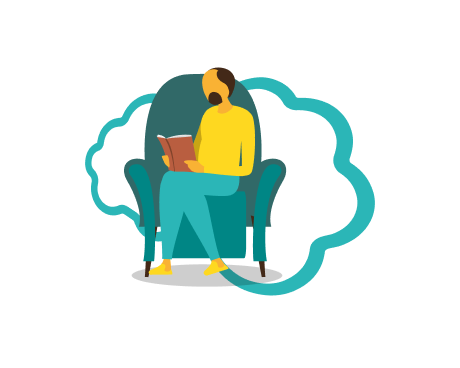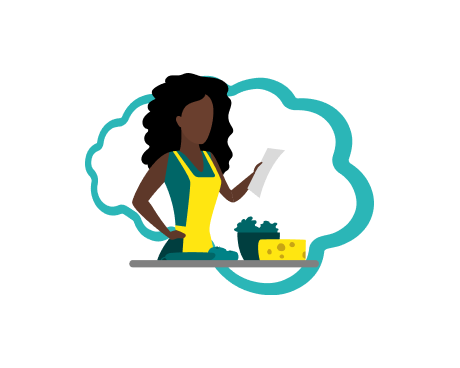Wellbeing Hub - New Zealand
We know that times are particularly hard at the moment, whether it is worrying about our mental and physical health, new routines or worrying about our loved ones. It is natural that these changes and concerns could have an impact on our wellbeing. So now, more than ever, it is important that we look after ourselves and each other and this hub is designed to help you do that.
Simply follow the links under each wellbeing focus area to find out more and how to access resources.
Please note that is really important that you contact a medical professional if you require additional help & support.
Mental & Emotional Wellbeing is the way we think, the way we feel and how we deal with everyday stresses in life. It is really important to remember that good mental health doesn’t mean we feel happy all of the time. It is when we are finding things in life difficult to cope with that we may need to ask for help. Mental health issues can arise for ANYONE at ANYTIME and if you are struggling your first port of call should always be a medical professional.
Please click on the checklist below for more information:
Physical Wellbeing means our body is working at it’s physical best – this is different for all of us but we know that staying active, eating healthily and taking care of our body is critical to our overall wellness.
Please click on the checklist below for more information:
Related downloads
Sadly, we know that there has been an increase in wellbeing challenges throughout 2020 and 2021. There are many fantastic online resources that provide support and guidance to assist in dealing with these. We have identified some of the most common challenges and found some great guidance and advice from some of the top wellbeing charities and Heath providers to support you and your colleagues.
Please click on the below for information on the most common wellbeing challenges:
Employee Assistance Programme (EAP)
LifeWorks by Morneau Shepell in AU & NZ - each individual will have their own login – it may have been issued and if needed, please contact your local HR/system administrator. You can contact Lifeworks on telephone number 1300 361 008 or visitt their website:
Mental wellbeing
The below links will take you to a list of charities and organisations that may provide an expert advice and guidance on a range of mental health challenges.
Support sites:
National Depression Initiative, free support/counselling service if you are suffering from depression
https://www.depression.org.nz - 0800 111 757 (Or text 1737)
Lifeline, free telephone counselling service
https://www.lifeline.org.nz/ - 0800 543 354 (Or text 4367)
Samaritans, free telephone counselling service
https://www.samaritans.org.nz/ - 0800 72 66 66
Suicide Crisis Helpline, free telephone counselling service
0508 828 865
Financial wellbeing
These resources will provide you with guidance and practical advice for managing your money and facing financial worries:
Salvation Army Crisis Help, provide accommodation, food, counselling and help in finding employment
https://www.salvationarmy.org.nz/ - 0800 530 000
Citizens Advice Bureau
https://www.cab.org.nz - 0800 367 222
Foodbank
https://www.foodbank.co.nz/
Work and Income
https://www.workandincome.govt.nz/
Physical wellbeing
Looking after your physical wellbeing and staying active is crucial for maintaining good health and overall wellness. These websites provide lots of advice and tips on health and fitness for everyone.
Are you ok
https://www.areyouok.org.nz - 0800 456 450
Shine
https://www.2shine.org.nz/ - 0508 744 633
Women's Refuge
https://www.womensrefuge.org.nz - 0800 REFUGE (0800 733 843)
Community Law
http://www.communitylaw.org.nz
Do something for yourself: it’s important to do things that make you happy. You could learn something new, spend time on your favourite hobby or just relax.
Try a new hobby, set yourself a goal or learn a new skill: this can be a great way to meet people, build your self-esteem and feel a sense of achievement.
Stop bad habits: stop smoking, cut down on alcohol and caffeine. Small changes can have a positive effect on your mood.
Talk to family and friends (online, by phone or in person). Talking to someone you about how you feel, or listening to someone else, can help stop you from feeling lonely and improve your mental health.
Spend time with other people. Even if you are feeling low or anxious, engaging with others is good for your mental health.
Take time to notice your thoughts and feelings, and the world around you. Being ‘in the present’ can help you get a better perspective.
Notice unhelpful or negative thoughts: sometimes our thoughts and behaviours can make a situation worse. If you can change the way you think about a situation (sometimes called ‘reframing’) you can improve your mental health and wellbeing.
Keep active: regular exercise can boost your self-esteem and can help you concentrate, sleep and feel better. Exercise keeps the mind and body healthy and really helps improve wellbeing.
Ask for help. We all sometimes get tired or overwhelmed by how we feel or when things don’t go to plan. If you feel you can’t cope, ask for help. Your family or friends may be able to offer practical help or support.
To help you get a good night’s sleep, try not to use any screens (TV, mobile device) for two hours before you go to bed.



Social Wellbeing is a sense of belonging to a community and making a contribution to society. Being your true self at all times. Engaging with people and treating others with respect. Maintaining and building strong relationships.
Please click on the checklist below for more information:
Related downloads
Connect with others